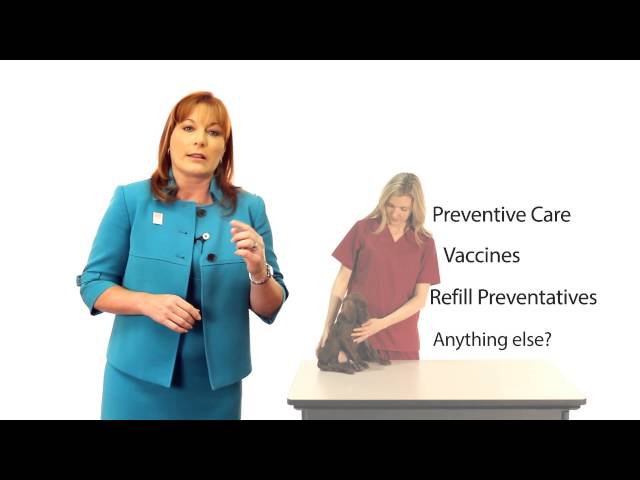Veterinary Practice Tips Series – Exam Room Greetings By Wendy S. Myers

Veterinary Practice Tips Series – Exam Room Greetings By Wendy S. Myers
FREE Veterinary CE courses at:
In this practice tip, Wendy S. Myers, President of Communication Solutions for Veterinarians discusses the proper steps to take when introducing yourself in the exam room. She also discusses key words and phrases to use that will help the entire veterinary staff communicate more effectively. For more veterinary practice tips please visit
For more information on Wendy S. Myers and Communication Solutions for Veterinarians, please visit

This is great for the fundamental understanding of what should go on at or with your normal veterinary clinic. The sad truth is that majority of the Veterinary clinics and hospitals don’t offer Wellness checkups nor do the go into great detail about the examination.
If it wasn’t for the fact that I worked for different Animal Shelters and Private Rescues and Clinics, I would have been suckered into spending money on vaccination, and visits that aren’t required. Most vet don’t even offer half if the services which are described in this video.
Thank You for providing some insight into a Wellness Checkup and a Health Examination.
Great video. Interpersonal communication skills are such an important inclusion for any veterinary student’s development.
@wrickmitchell
These are great tips! I love the idea of stating it’s a “preventative care exam” instead of a “wellness exam”.
Thanks for posting this video (and the others on your site). I am a newly certified vet tech who started late in life in my mid-40’s. There are lots of expectations in the clinic for what you need to know for technique, drugs, clean-up and what the vet expects. However, client-service/communication training is usually absent, and it is pretty darned important! This video touches on proper communication, politeness and professionalism, which are three very important skills every tech (and vet) should possess and hone. Also, taking the time and patience to educate clients instead of rushing them in and out is vitally important.